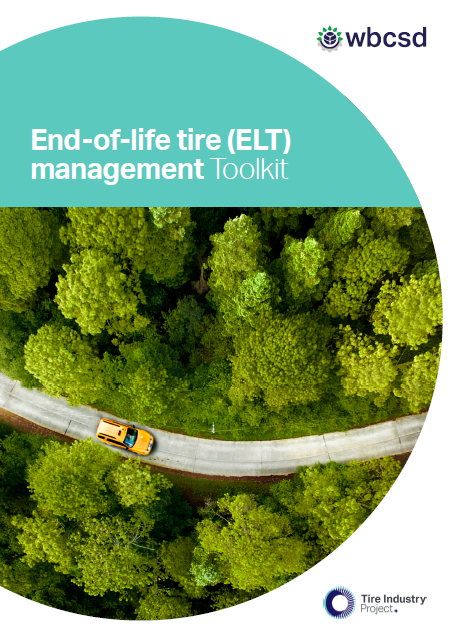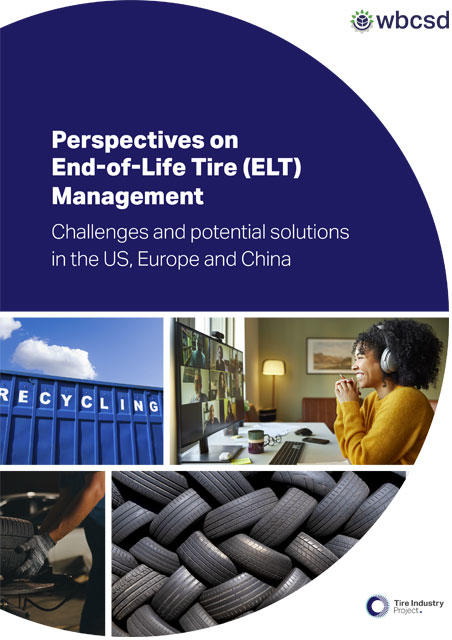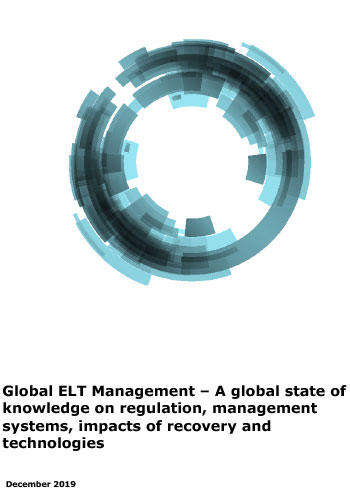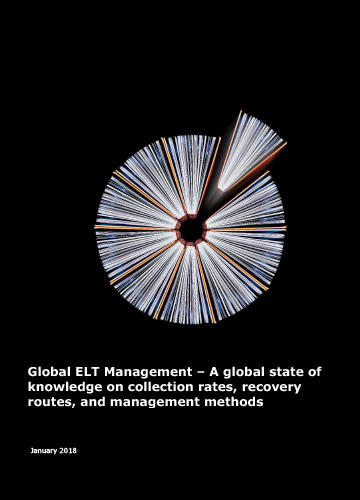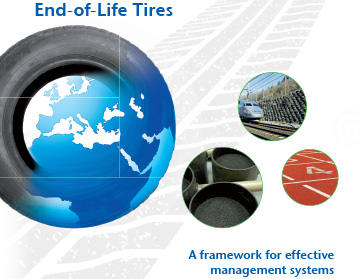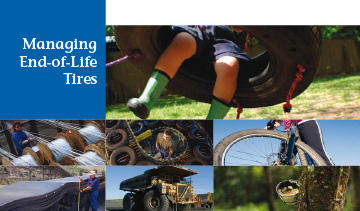End-of-life tire (ELT) management Toolkit
The drive behind improved ELT management
Globally, an estimated one billion tires reach the end of their useful lives every year. The management of ELTs in environmentally sound and productive ways continues to be a high priority of TIP members. Various regional efforts by government authorities, the tire industry and individual manufacturers are currently underway to improve ELT management and good progress is being made.
ELT and their materials are an inexpensive, yet valuable, resource for the circular economy that can be used in a variety of applications. Successful ELT management systems foster the circular-use of ELTs and contribute to avoid the unregulated dumping of tires.
Benefiting from TIP’s extensive global research on ELT, this toolkit lays out key steps for establishing and enhancing ELT management, underlining the social, economic and environmental benefits of systems that work well.
Actions to improve ELT management have been identified as important drivers of sustainability within the tire industry and feature in a recently published sustainability roadmap for the sector: Sustainability Driven: Accelerating Impact with the Tire Sector SDG Roadmap.
Perspectives on End-of-Life Tire (ELT) Management: Challenges and potential solutions in the US, Europe and China
In collaboration with regional tire trade associations TIP organized workshops in the US, Europe, and China for ELT value chain stakeholders to develop a shared understanding of the challenges and potential solutions toward more sustainable ELT management.
The workshops confirmed that all three regions had improved their ELT recycling rates over a 20-year period, but that important opportunities for improvement remained.
Seeking to leverage ELT stakeholder motivation, this report recommends measures aimed at providing organizations and individuals with the tools and frameworks for knowledge exchange and collaboration that are required to effectively lead the development of better – more circular – ELT management systems.
Global ELT Management – A global state of knowledge on regulation, management systems, impacts of recovery and technologies
Global ELT Management – A global state of knowledge on regulation, management systems, impacts of recovery and technologies
With data on End-of-life Tire (ELT) management practices from 45 countries, the 2019 TIP report “Global ELT Management – A global state of knowledge on regulation, management systems, impacts of recovery and technologies”, includes:
- An overview of current and prospective regulations, ELT management systems (collection, transport & intermediate treatment stages)
- The distribution of ELT across recovery methods, products and applications
- A better understanding of the feasibility of different recovery route categories and associated methods, products and applications
- An overview of studies conducted on the risk of impacts on health and the environment
- A panorama of advanced technology and innovations in ELT recovery to overcome risks and improve viability
The report updates an earlier TIP ELT report - published in January 2018 - and contributes toward the TIP objective of advancing ELT management globally through the identification and sharing of best practices.
A global state of knowledge on collection rates, recovery routes, and management methods
A global state of knowledge on collection rates, recovery routes, and management methods
TIP has developed a state of knowledge (SOK) report that takes an in-depth account of the countries around the world that produce the largest numbers of ELT. Through this landscape analysis, TIP has identified the most promising recovery routes, and is sharing that knowledge with stakeholders so that they can focus on the most effective methods in the future. The purpose of the SOK was to get an overview of the current ELT management systems for a selection of 51 countries: Europe (countries covered by ETRMA scope - European Tire & Rubber Manufacturers' Association), USA, Japan, South Korea, Canada, New Zealand, Australia, Brazil, China, India, Indonesia, Mexico, Russia, South Africa, Thailand, Malaysia, Saudi Arabia, Ukraine, Argentina and Morocco, which cover 89% of vehicles in the world.

